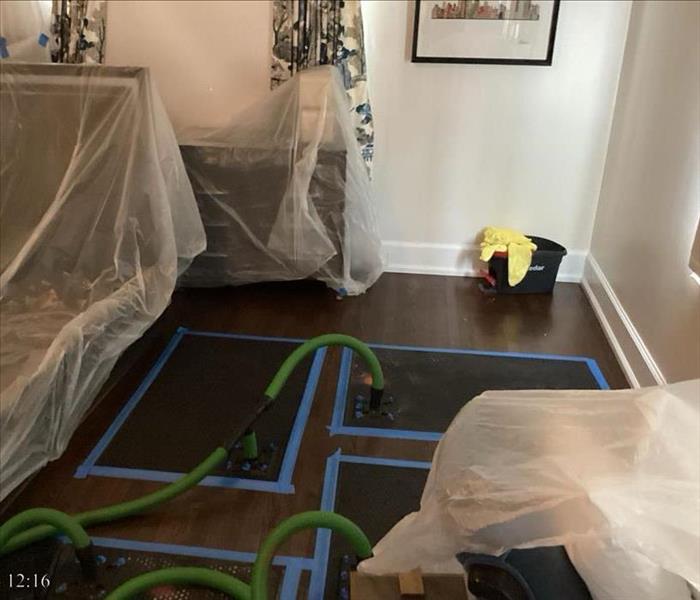Enhancing Your Home's Resilience Against Water Damage
6/12/2024 (Permalink)
 In this blog, we will discuss practical tips and strategies to safeguard your property from water-related issues.
In this blog, we will discuss practical tips and strategies to safeguard your property from water-related issues.
Water damage is a common and potentially costly issue that homeowners face. However, by taking proactive steps to enhance your home's resilience against water damage, you can minimize the risk and mitigate potential damage. In this blog, we will discuss practical tips and strategies to safeguard your property from water-related issues, whether from flooding, plumbing leaks, or environmental factors.
Regular Inspection and Maintenance
Perform periodic inspections of your home's plumbing system, including pipes, faucets, and appliances, to identify any signs of leaks or deterioration. Promptly address any leaks, no matter how small, as they can lead to severe water damage if left unattended. Regular maintenance of your home's structural elements, such as the roof and foundation, can also help prevent water intrusion.
Install and Maintain Proper Drainage Systems
Ensure your home is equipped with a well-designed and adequately maintained drainage system. Clean gutters and downspouts regularly to prevent clogs that can result in water overflow or backflow. Optimize the slope of your property to direct water away from the foundation, preventing pooling and potential structural damage.
Grade Landscaping and Foundation Protection
Properly grade your yard to ensure that water flows away from the foundation. This helps prevent groundwater seepage into basements and crawlspaces, reducing the risk of water damage. Additionally, consider installing foundation waterproofing systems, such as exterior coatings or interior drainage systems, to provide an extra layer of protection against water infiltration.
Install Sump Pumps
Sump pumps are essential tools in preventing basement or crawlspace flooding. Install a reliable sump pump and ensure it is properly maintained and regularly tested. Consider a battery backup system to ensure functionality during power outages. Properly directing the discharged water away from the foundation is also crucial to prevent water from re-entering your home.
Seal Vulnerable Areas
Identify and seal any potential points of water entry in your home. This includes gaps around windows and doors, cracks in the foundation, and damaged or missing roof shingles. Adequate sealing of these vulnerable areas helps maintain a watertight envelope and reduces the risk of water intrusion.
Use Water-Resistant Materials
When making renovations or repairs, opt for water-resistant materials whenever possible. Consider moisture-resistant drywall, water-repellent sealants, and waterproof membranes for areas prone to high humidity or water exposure, such as bathrooms, basements, and laundry rooms. These materials can help prevent water damage and inhibit the growth of mold and mildew.
Install Water Detection and Alarm Systems
Invest in water detection and alarm systems that can alert you to potential leaks or water intrusion. These systems utilize sensors and alarms to notify homeowners of any water-related issues, allowing for immediate action and mitigation, and preventing extensive damage.
Educate Household Members on Water-Saving Habits
Encourage water-saving habits among household members to reduce the risk of plumbing failures and minimize water damage. This includes promptly repairing dripping faucets, avoiding excessive water usage, and properly maintaining and using appliances such as washing machines and dishwashers.
Consider Flood Insurance
Evaluate your need for flood insurance, regardless of whether you live in a flood-prone area. Flood damage can occur from various sources, including heavy rainfall or plumbing failures. Having the appropriate insurance coverage can provide financial protection in the event of water damage.
By implementing these proactive measures to enhance your home's resilience against water damage, you can significantly reduce the risk of costly repairs, property damage, and the associated stress and inconvenience. By regularly inspecting and maintaining your home, improving drainage systems, sealing vulnerable areas, using water-resistant materials, and investing in early detection systems, you can better protect your property from the detrimental effects of water damage. As always, SERVPRO® is here to provide professional assistance if water damage does occur, ensuring a swift and thorough restoration process.






 24/7 Emergency Service
24/7 Emergency Service